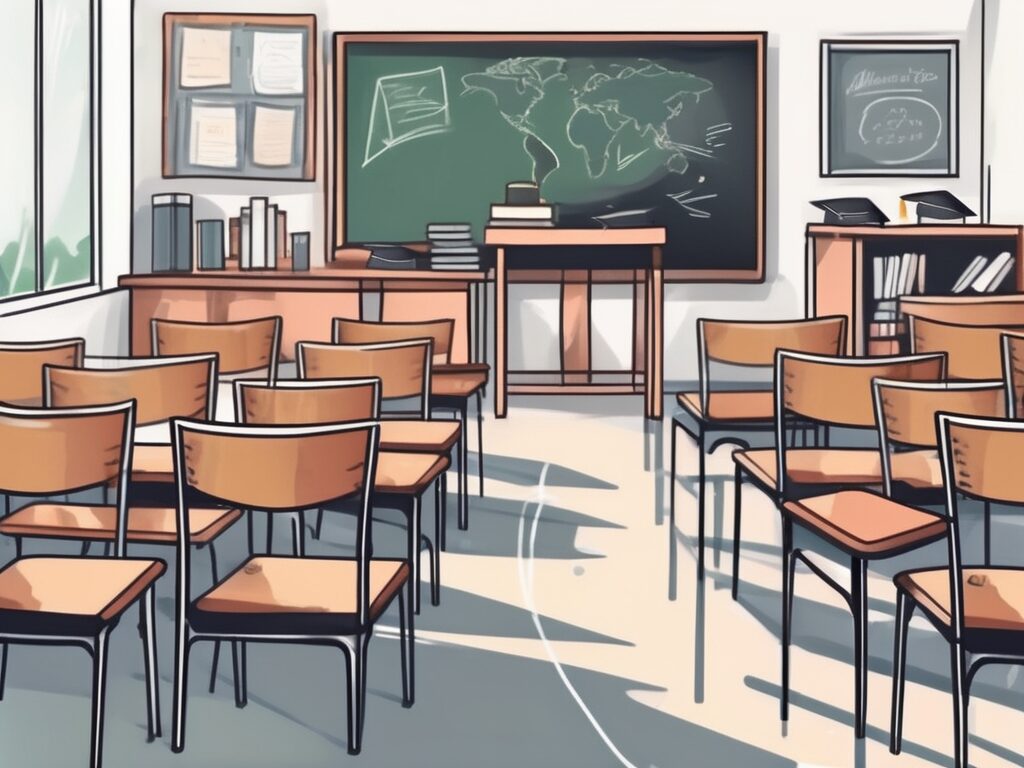Embarking on a teaching career in Thailand can be an exhilarating journey, filled with rich cultural experiences and rewarding interactions with eager students. However, it can also present unique challenges, particularly for those who are new to the Thai education system. A Postgraduate Certificate in Education (PGCE) can be a powerful tool in navigating these challenges, equipping you with the necessary skills and knowledge to thrive in this vibrant Southeast Asian country. In this blog post, we’ll explore four winning strategies to ace teaching in Thailand with a PGCE.
Understanding the Thai Education System
The first step to successful teaching in Thailand is understanding the local education system. Thai schools operate on a unique schedule, with the academic year starting in May and ending in March. There are two main terms, separated by a month-long break in October. This is quite different from the September to July academic year that is common in the UK, and it can take some time to adjust to this new rhythm.
Furthermore, Thai schools place a strong emphasis on respect for authority and conformity. This is reflected in the classroom, where students are expected to listen attentively and follow instructions without question. As a teacher, it’s important to be aware of these cultural norms and adapt your teaching style accordingly. A PGCE can provide valuable insights into these aspects of Thai education, helping you to navigate the system effectively.
Mastering the Language Barrier
One of the biggest challenges faced by foreign teachers in Thailand is the language barrier. While English is taught in Thai schools, the level of proficiency can vary greatly among students. This can make classroom communication difficult, particularly in the early stages of your teaching career.
However, a PGCE can equip you with strategies to overcome this hurdle. For instance, you might learn how to use visual aids and physical demonstrations to convey complex concepts, or how to simplify your language to make it more accessible to your students. Additionally, learning some basic Thai phrases can go a long way in building rapport with your students and making your lessons more engaging.
Adapting to Cultural Differences
Thailand is a country rich in history and tradition, and these cultural elements often permeate the classroom. As a foreign teacher, it’s important to respect these traditions and adapt your teaching style to fit within this cultural context. For example, it’s customary for students to wai (bow) to their teachers at the start and end of each day. This is a sign of respect and is a key part of the Thai education system.
Moreover, Thai culture places a high value on maintaining harmony and avoiding conflict. This can sometimes make it difficult to address issues directly in the classroom. A PGCE can provide you with strategies to handle these situations in a sensitive and respectful manner, ensuring that you maintain a positive learning environment for your students.
Developing Effective Teaching Strategies
Finally, a PGCE can help you to develop effective teaching strategies that are tailored to the Thai education system. This might involve incorporating interactive activities into your lessons to engage your students, or using technology to enhance your teaching methods.
For instance, you might find that Thai students respond well to group work, as it allows them to learn from each other and build their teamwork skills. Alternatively, you might discover that incorporating multimedia elements into your lessons can help to hold your students’ attention and make complex concepts more understandable.
In conclusion, teaching in Thailand can be a rewarding and enriching experience, particularly if you’re equipped with a PGCE. By understanding the Thai education system, mastering the language barrier, adapting to cultural differences, and developing effective teaching strategies, you can ace your teaching career in this vibrant country. So why wait? Start your journey today and make a difference in the lives of Thai students!
Elevate Your Teaching Career with The IQTS at UWE
Ready to take your teaching career in Thailand to the next level? The International Qualified Teacher Status (iQTS) programme at The IQTS at UWE is your gateway to overcoming the common barriers educators face abroad. With our Level 7 qualification, you’ll not only meet the stringent requirements of international schools but also enhance your professional development, leading to a 45% increase in promotion rates and a significant salary boost. Join a thriving community of educators, gain a deeper understanding of global education systems, and enjoy the flexibility of online study tailored for working teachers. Don’t let isolation or lack of qualifications hold you back. Make Your Next Step with the iQTS programme and become 65% more adaptable in the diverse educational landscape of Thailand.

